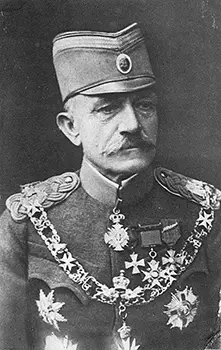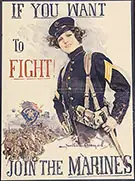Generals of World War One
One of the most known generals of WWI was Zivojin Misic of Serbia. He was born on January 19, 1855. He would serve in the military from 1877-1918, just to the end of WWI. He was a renowned instructor at the Military Academy I from 1898-1904 in the area of warfare and strategy.
Although the onset of WWI was caused by a Serbian rebel that assassinated the heir to the Austrian throne of Austria-Hungary, Misic was dedicated to the protection of his country from Austrian forces. He was given command of the Serbian First Army. In December of 1914, his forces won a major battle against Austro-Hungarian forces at the battle of Kolubara. This battle was prime in driving back the invading army of Austria/Hungary.


The winter of 1915-1916, Misic and his Serbian forces were being pushed through the mountains of Albania by the German and Austro forces. The courageous general sought to stand and fight rather than being constantly forced to retreat by higher authorities. His belief was that it was better to cut down the enemy forces rather than continue to be driven further and further away.
After recuperating in France from exposure of the famous retreat, the general was brought back in 1916 to once again lead the Serbian First Army. After major victories in league with French forces; the combined armies were able to finally send Bulgaria out of the war. Misic saw greater advances prior to the end of WWI into Austro-Hungarian lands. This played greatly into postwar establishment of Slavic countries.

Sir Douglas Haig was born June 19, 1861 in Edingurgh, England. His education included college at Brasenose College and then the Royal Military Academy in 1884. However, his stay was short when a year later when he joined 7th Hussars as a cavalry officer and was shipped to India for almost 10 years.
He fought in the Second Boer War in Africa from 1899-1902. His service distinguished him to be made Director of Military Training back in England by 1906. It was here he established the British Expeditionary Forces (BEF) that would be in place if and when war broke out with Germany. This was also the forces that Lord Kitchener despised when he went after establishing an all-volunteer army.
By 1914, Haig was placed in charge of the 1st Army Corps of the BEF. His division fought at the battle of First Yres and Mons, enjoying distinguishing service. When Sir John French, leading the BEF, became despondent about success in fighting the German forces; Douglas Haig was put into his place as Commander in Chief.

One issue however with the style of Haig’s leadership was his reliance upon the cavalry and their warfare methods. Haig did not believe in the modern weaponry that was making its mark, such as the tank and machine gun.
Haig was ordered to advance the date of the famous Somme offensive to July instead of August 1916. The belief that was moving the date early, the German bombardment on the British at Verdun would be demised as German forces would be moved to Somme’s. However, the advancement did not ease things at either location. In fact, British loses on the first day were significant.
1918 saw Sir Douglas Haig as Commander of the British forces until the armistice later that year.
Although many found his strategies to be costly in the terms of human life, it is thought he still played a major role in Allied victories of WWI.

Armando Diaz
Armando Diaz was born in Naples on December 4, 1861. He attended military college in Turin and Naples Italy. From there Diaz would go to serve in the military in the Italy-Turkish war, where he served with established courage.
When WWI broke out in 1914, Diaz was promoted to Major General and worked to improve the Italian army. The army suffered from no organization and a lack of troops. His ability to move men to action made him a great military genius for the Italian cause.
Diaz was made Chief of Operations for the Italian military. He saw victories at Gorizia and Carso. Although the Italian forces were defeated at Caporetto, Diaz was made Chief of Staff of the Italian Army for his distinguished service there.
Diaz would participate in victory for Italy near the war’s end at the Vittorio Veneto offensive. His victory there drove a huge spike into the Austro-Hungarian army towards their defeat. Diaz’s actions gave Italy considerable land options at the peace table.
There are many generals of note that fought in WWI. Take the time to learn more about them.



